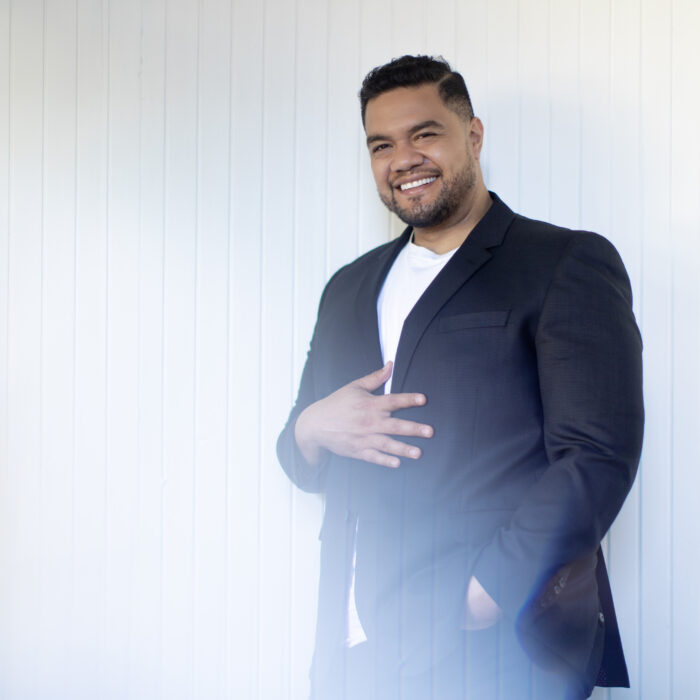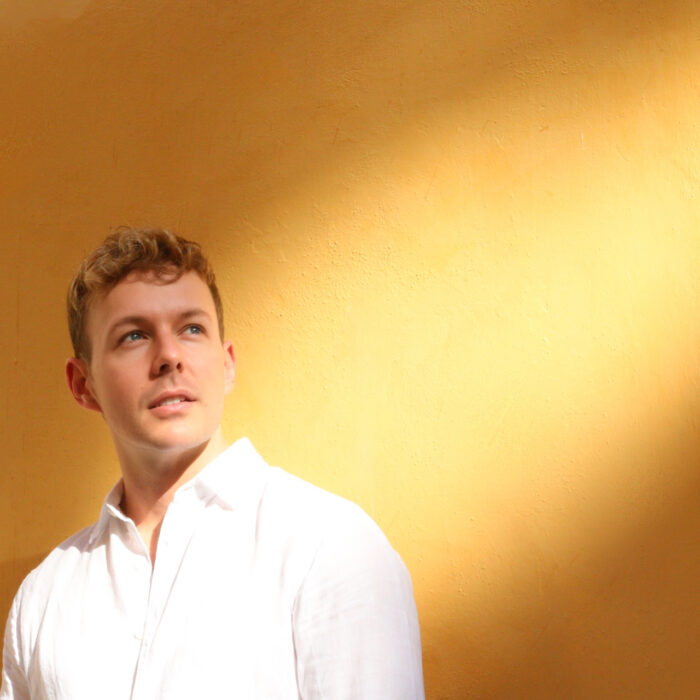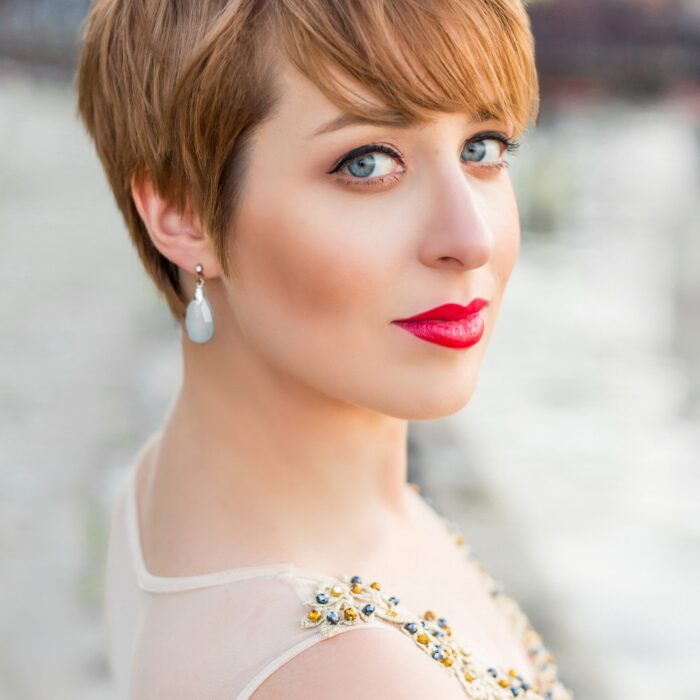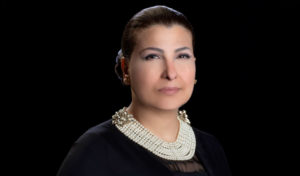
Renaissance Woman – Huda I. Alkhamis-Kanoo, Founder of Abu Dhabi Music and Arts Foundation, On Bringing Cultures Together Through Music
By Chris RuelIt was the afternoon following the Metropolitan Opera’s premiere of “Der Fliegende Holländer,” that I met a glowing Huda I. Alkhamis-Kanoo, the founder of the Abu Dhabi Music and Arts Foundation (ADMAF) and the Abu Dhabi Festival.
The Abu Dhabi Festival was one of four organizations co-producing the Met’s “Dutchman,” the other three being the Metropolitan Opera, L’Opéra de Québec, and The Dutch National Opera – Amsterdam. Kanoo was in high spirits, and as we sat down to talk, her first words were those of praise for soprano Anja Kampe’s performance as Senta, the woman who falls in love with Wagner’s doomed sea captain.
“The premiere was phenomenal! It was magical! The soprano was someone I did not know, but Peter [Gelb] said to trust him on this. She was exceptional. Mark my words. This young soprano will be a star—she already is a star. The show is two hours and a half, non-stop, and she maintained it,” Kanoo said, with an immense smile.
Bringing Opera to the Arab World
For roughly 10 years, Kanoo has worked closely with Gelb to bring opera to the Arab world with this co-production a first between The Met Opera and an Arab institution. It’s hard to imagine that something so grand as putting on a Wagner opera began quite humbly.
Exposure to opera—especially live performances—in the Arab world was minimal. But Kanoo looked to change that in a big way. She knew if opera were to come to Abu Dhabi, the public needed to be ready for it. Working with Gelb, Kanoo arranged for a Met Live in HD broadcast to be shown in Abu Dhabi. Because of the time difference between New York and Abu Dhabi, Kanoo worried that people wouldn’t stay for the entire performance, which took place late at night. Her fears didn’t materialize.
“Peter called, and I said, ‘Peter! I’m here; it is a full house, and they don’t want to go home!’ From then on, we continued showing Met HD videos, putting them in the cinemas. It snowballed. And now, we’re here, with a new co-production.”
To understand how Kanoo went from presenting a single Live in HD broadcast to co-producing “Dutchman” in partnership with the Met, it’s necessary to get a sense of the type of woman she is. She is passionate about her causes, and her level of dedication is unmistakably clear, but those two qualities spring from a deep well of conviction, an uncompromising belief that the arts—music, in particular—can serve as the bridge that connects distant cultures and brings humanity together.
In the short span of 24 years, the Abu Dhabi Music and Arts Foundation has evolved into a powerhouse within the Emirates and abroad. Seven years after founding ADMAF, Kanoo started the Abu Dhabi Festival, and her dream of bringing together Western and Arab culture became a reality. Her philanthropic endeavors range beyond the arts; she is a strong advocate of education and of women’s rights. Kanoo has been recognized by nearly all the major European countries, bestowing upon her the highest civilian honors governments can give.
His Highness President Sheikh Khalifa bin Zayed Al Nahyan appointed her to the board of the Abu Dhabi Authority for Culture and Heritage (now the Department of Culture and Tourism – Abu Dhabi) on which she served until 2012.
Then, his Highness General Sheikh Mohammed bin Zayed Al Nahyan, Crown Prince of Abu Dhabi awarded her with the Abu Dhabi Award and the Abu Dhabi Medal. She is The Commander of the Royal Order of Isabella the Catholic, a title given to her by His Royal Highness Juan Carlos, King of Spain; Queen Elizabeth the Second honored her with admittance into the Order of the British Empire; France has named her Chevalier de l’Ordre National de la Légion d’Honneur of France and Chevalier de l’Ordre des Arts et des Lettres of France. Germany and Italy have also commended her work with honors and awards.
Looking at her biography, Alkhamis-Kanoo cuts an imposing figure (she is styled Her Excellency); but, she is truly a humble person who never once during our conversation referenced any of her honorifics because the work she does isn’t about her.
“Someday, I’m going to go, and when I do, no one will remember me. Who will be remembered? Composers, writers, musicians—artists who made a difference. So, this is why I am here. We work together—East and West. Don’t tell me about your religion, or your race, or your color, or your politics. Don’t go there. When we meet for culture, everything drops, and we meet at peace.”
Peace. I had never heard the word spoken with such quiet devotion to the idea itself. Kanoo went on to relate a story about peace involving Wynton Marsalis and an Iraqi lutist sharing the stage at Jazz at Lincoln Center. The performance took place in the wake of the First Gulf War.
“Wynton Marsalis performed with an Iraqi virtuoso on the lute—we also base our music on improvisation like jazz—so, there they were, both on the stage, talking with each other, and improvising with each other. To have an Iraqi and an American shake hands, hug each other, and work together on stage that evening was phenomenal. Everyone in the auditorium was on their feet… tearing up, clapping, giving a standing ovation… that’s the power of music!”
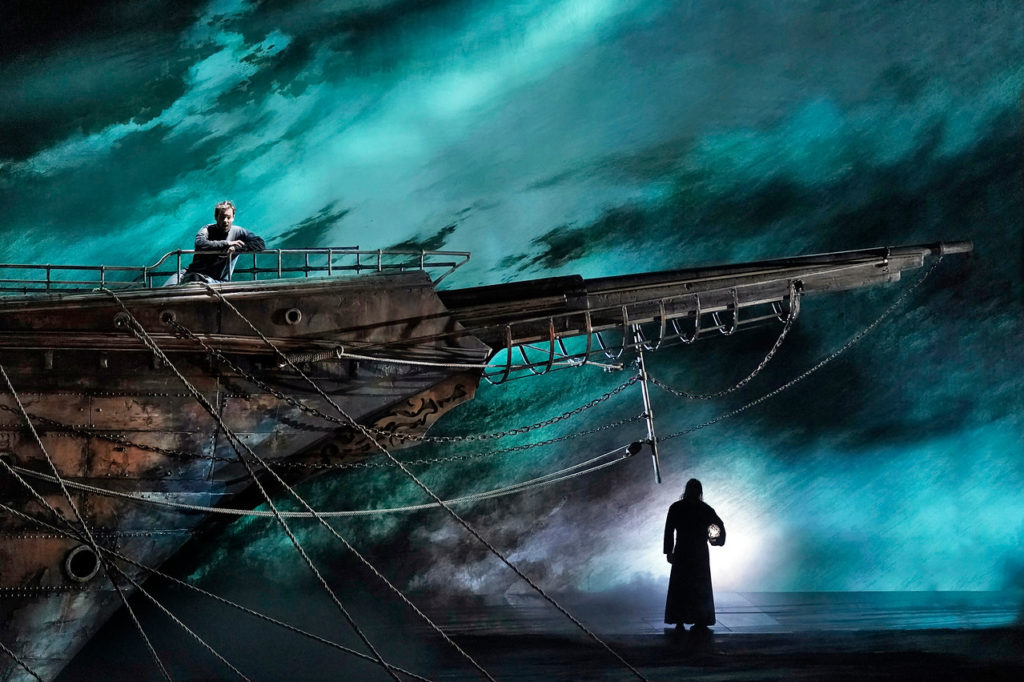
(Credit: Ken Howard / Met Opera)
The Power of Music
What is it about music that has captured Kanoo’s heart? Her foundation works across the arts, and her husband is a visual artist; but, music—music is her passion.
“Music for me is a place that once you discover it, you don’t want to leave, but it’s the ultimate abstract that you cannot describe in one word. It unites people, it opens hearts, it opens minds,” she noted. “When I listen to music, I can see it in a way that I want to catch it. It makes us better people.”
For classical music to thrive, Kanoo knows acutely that exposure and education are the keys to bringing fresh audiences into classical music venues. Even students going to such an esteemed music school as Juilliard—an institution that sits across the street from Lincoln Center—need to visit their neighborhood opera house now and again.
“I invited 26 Juilliard students to the premiere—musicians, composers, and singers. Many of them had never been to a premiere. Bring them in! Open the doors! Listen to what the youth have to say! And support them. You want composers, you want the writers, you want all of that? Support the youth.
“Do you know where we fail, in my opinion? We have failed in our education system. If we don’t have the youth of today at the opera house, it’s because they don’t know much about it. Give them the history, tell them the stories! They will love it.”
Kanoo backs her words with action. When she speaks of the impact her foundation and festival have had on the youth in her country, her voice was joyful. All throughout our time together, she spoke her sentences like an opera singer performing a beautiful aria—her tone, her shading, and her expression mellifluous, and when she would finish a thought, she would stop and smile, sometimes adding a word or two in hushed speech—words such as “beautiful” and “amazing.”
“I saw on the stage a young Emirati, a young Arab artist, in this case, it was a soprano. I asked Renée Fleming, ‘Can you give a chance for this young Emirati soprano to be with you on stage?’ Renée said, ‘Huda, I will audition her; I will see her and see her capabilities. If she’s good, I will take her with me on the stage and we will work together.’ And, it happened! Nothing beats this. Nothing.”
I asked how more singers from the Arab world could be given be the opportunity to sing on the great stages. Kanoo liked to enumerate her thoughts in groups of three, and so she laid out a trio of things that need to happen for more young singers to have a shot at the big time.
“First, give them exposure. Second, provide career development, invest in them, invest in their education path. If they don’t have conservatories at home, you send them abroad. To do that, you need scholarships; so, scholarships are important. Third, provide hands-on experience. Every time we have an artist, a musician, a composer, or an opera singer in Abu Dhabi, they work with the youth. Bryn Terfel went to special needs schools. Violinist Joshua Bell went to Liwa. Liwa is very deep in the desert. He brought his Stradivarius and allowed young students to touch it—and he didn’t mind!”
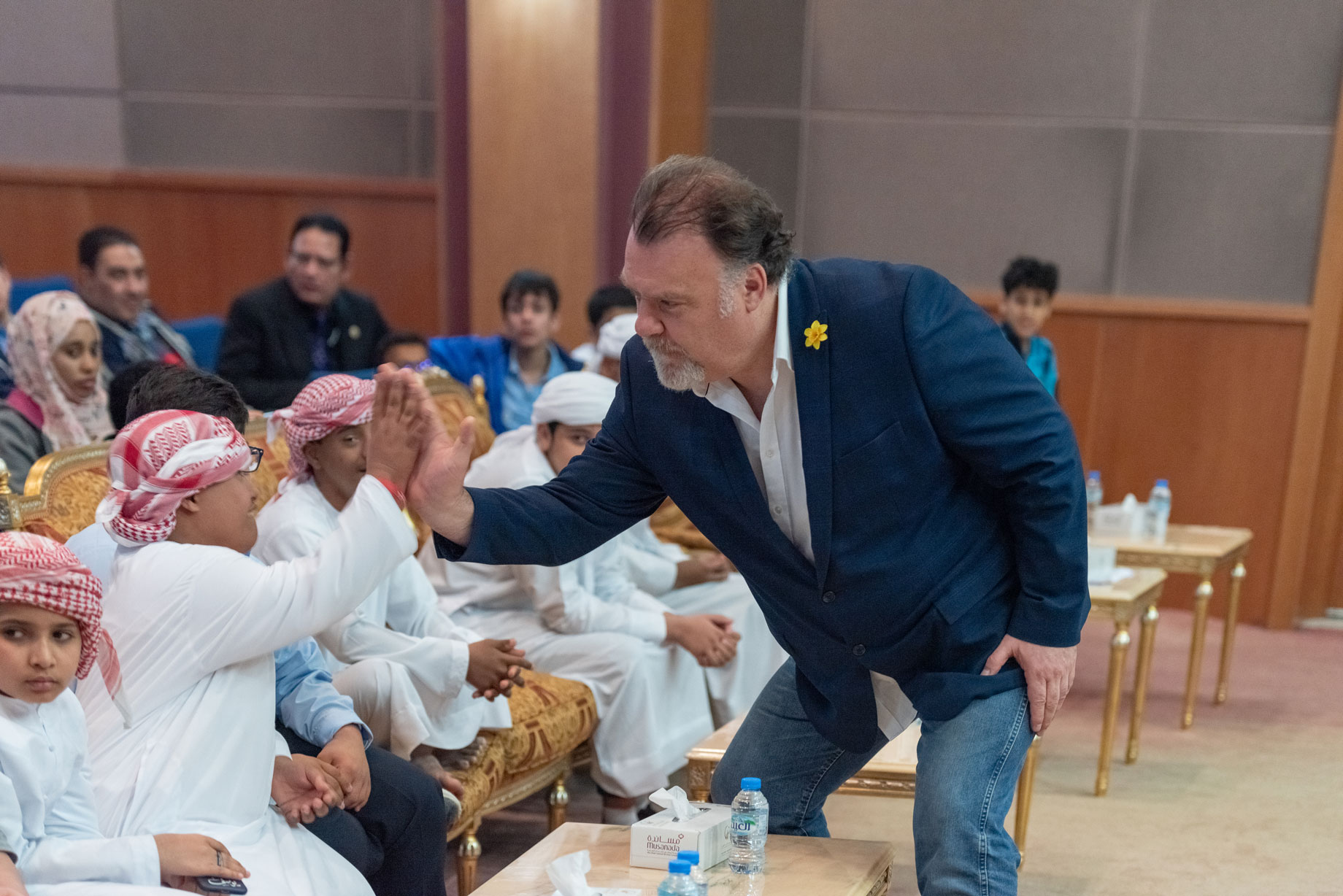
Sir Bryn Terfel – Credit: ADF
Three Words
Kanoo’s Abu Dhabi Festival showcases world-class artists—from jazz to orchestras to ballet and opera. The festival has brought many American artists to its stage. The 2020 line-up includes The Cleveland Orchestra, Yo-Yo Ma, the American Ballet Theatre, and George Porter—a funk bassist who hails from New Orleans.
After establishing a working relationship with Peter Gelb, Alkhamis-Kanoo said discussions for a Met Opera/Abu Dhabi Festival co-production began roughly three to four years ago. The four co-producing organizations considered operas from across the repertoire. In the end, it was “The Flying Dutchman” that got the nod from all involved.
“‘The Flying Dutchman’ was feasible for the four of us—The Met, the Abu Dhabi Festival, L’Opéra de Québec, and The Dutch National Opera – Amsterdam. It was the most feasible in terms of the time, the funds, and the possibilities. We were all on the same page. Sometimes, you start with a group and one of them will say, ‘Oh, no, I’ve changed my mind,’ but there was none of that; it all just came together. Believe it or not, the production was not so difficult to put together. Do you know why? The directors, myself, and Peter all thought alike.
“I started with humble, small ideas, and then we moved on to what you see today. Can we bring the live production to Abu Dhabi? Yes, when the infrastructure is ready. The theaters are not ready for this, and I don’t like to compromise.”
It fit that the opening night of a show co-produced by a woman and centered on the power of a woman’s unconditional love coincided with the beginning of Women’s History Month. In addition to music and raising up the youth through education, Kanoo focuses a good deal of her time and efforts on women’s rights. She is the recipient of the Women Together Award presented by Women Together, a UN-affiliated non-governmental organization.
“Women have equal rights like men. We are all created equal. We come to this world, woman and man, to make a difference and to live happily. Empowering a woman is not a choice, it’s a must. And empowering a woman means giving her a right to education, the right for career development, the right for equal wages—these are rights. Together, we can build a better future, and that’s why I believe in empowering women; it is for the betterment of humanity.”
As we said goodbye, Kanoo gave her final three points—three lessons she has learned from working with culture and art. The first was passion; the second was perseverance.
In hushed tones, she stated the last word with a smile. “Patience.”

